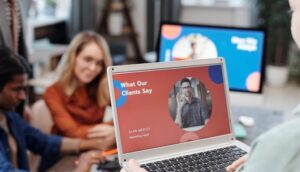Target audiences
- Adult educators
Components of digital andragogy mostly focused on “click” generation and their learning expectations. As addition, using illustration, sound, and video, adult educators reach learners with motivation to be engaged in the meaningful course.
Undoubtedly, digital andragogy constantly changing in the way of Web 1.0, Web 2.0, and Web 3.0 format. Making adaptions to adult learners’ adequate needs and competencies digital content become friendly to use. Obviously, the digital environment, context, and practices dramatically changed within communities and daily life.
 Virtual andragogy material in massive open learning resources become a norm for each adult. Moreover, sometimes adult learners do not recognize informal or non-formal learning as a learning process. The reflective practice of adult educators gives subsequently insights for andragogical techniques improvements during observation of online learning.
Virtual andragogy material in massive open learning resources become a norm for each adult. Moreover, sometimes adult learners do not recognize informal or non-formal learning as a learning process. The reflective practice of adult educators gives subsequently insights for andragogical techniques improvements during observation of online learning.
Target Audience:
- Adult educators who wants to create an online learning system
- Learning content developers who wants to know about digtal andragogy
Digital andragogy principles based on modular training concept and micro-learning. Navikienė (2010) emphasizes that the module is comfortable, and accessible to the entire structural learning unit. The module is defined as an independent, small, short learning component, chapter or part that everyone can learn in a flexible learning way. Navikienė (2022) says that micro-learning structural features focused on accessibility, flexibility, functionality, clarity, and concentration of learning material. Accessibility could be ensured through different social channels, freely reachable to everybody.
The functional feature of micro-learning importance shows that it should be presented in a useful way for the learner, to present a concentrate of material, which is clear and could be followed, watching a comfortable time for the learner. Particularly, the micro-learning content features are: short, small, direct. The short content of micro-learning based on virtual andragogy should respond to these main features:
– productivity (to gain competencies);
– dynamism (attractiveness of learning material);
– universality (micro-learning can be used for all types of learning and for everybody).
- Micro-learning is a dynamic, specific, complex educational component and depends on personal/individual learning goals/modifications.
- Micro-learning is separate from qualification but could strengthen specific professional competencies. The process of micro-learning is connected with small portions of learning ideas, material, and content that are provided fragmentally, selectively, and autonomously.
- Micro-learning direct features consist of integrative, versatility, and cumulativeness.
 Digital andragogy based on micro-learning main principles are accessibility, flexibility, and functionality (utilitarian principle) and motivational, and teaching/ learning technology principles. Micro-learning functional (utilitarian) principle shows practical, functional, useful, and effective learning forms, methods, and ways. Micro-learning especially demonstrated motivationally, and teaching/ learning technology principles as one of the ways to engage learners with a small, short, and direct portion of specific knowledge, and skills micro-learning. Definitely, teaching/learning technology principles focus on how to use innovative platforms, and channels to engage and motivate learners to choose micro-learning (Navikienė, 2022)
Digital andragogy based on micro-learning main principles are accessibility, flexibility, and functionality (utilitarian principle) and motivational, and teaching/ learning technology principles. Micro-learning functional (utilitarian) principle shows practical, functional, useful, and effective learning forms, methods, and ways. Micro-learning especially demonstrated motivationally, and teaching/ learning technology principles as one of the ways to engage learners with a small, short, and direct portion of specific knowledge, and skills micro-learning. Definitely, teaching/learning technology principles focus on how to use innovative platforms, and channels to engage and motivate learners to choose micro-learning (Navikienė, 2022)
According to the author (Navikienė, 2010) the main principle of modular training emphasizes the precondition of flexibility. Obviously, one of the main principles of micro-learning is flexibility too. Flexibility to choose learning material, time, and implementation (learning environment, channel) is one of the important micro-learning attractiveness features.
LEARNING OUTCOMES
- Ability to create micro-learning material
- Practical assignments integrate andragogical principles using digital tools
- Practical learning experience working with digital tools
Course Features
- Lectures 1
- Quizzes 0
- Duration 2 hours
- Skill level All levels
- Language English
- Students 29
- Assessments Yes
-
Lesson 1



